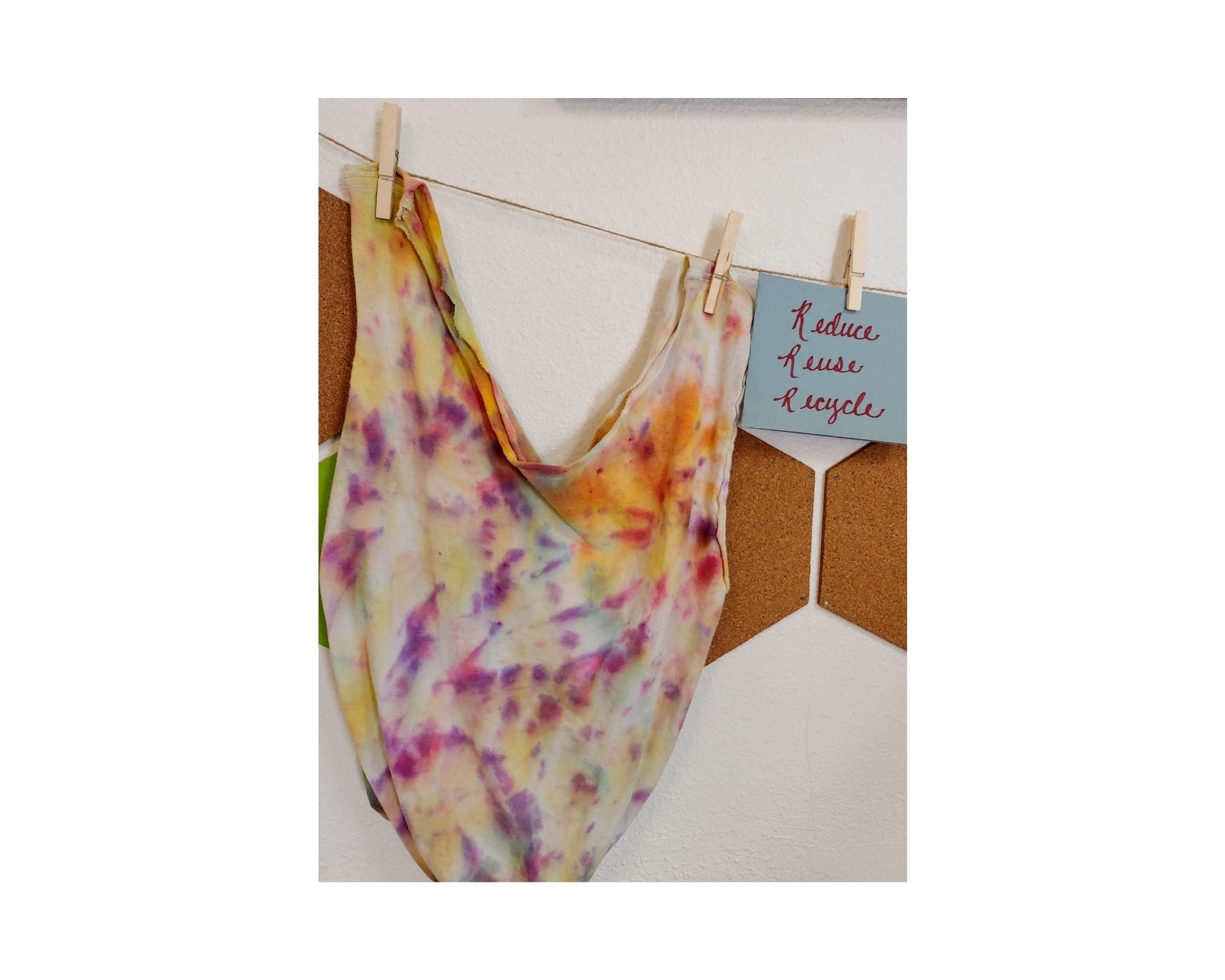October is Waste Reduction month! It is a great time to think about how we can reduce our carbon footprint and work toward achieving SDG #12: Responsible Consumption & Production. Repurposing also contributes to SDG #13: Climate Action by diverting waste and reducing the amount of greenhouse gas emissions produced by landfills. SDG #6: Clean Water & Sanitation, SDG #14: Life Below Water, SDG #14: Life Below Water, and SDG #15: Life on Land are also included, since less waste will end up in our waterways and harm aquatic and land animals.
Repurposing common household objects is a great way to start. A lot of these projects are cheap, fun, and mean that less waste ends up in the landfill.
Jars

Take a look at some of the suggestions below:
- Containers for leftovers: Use your glass jars to store leftovers. The seal on them makes them ideal for storing soup and other leftovers. Glass jars are also safer than plastic containers for heating up food in the microwave. (When plastic is heated, it leaches chemicals that could be harmful for your health.)
- Shopping: Bring your glass jars when you shop at a growing number of stores, such as Zero Waste Bulk or Full Circle Foods. Not only does this mean that your garbage will not get full as quickly, but it also reduces the chance of spoilage.
- DIY Pencil holder: Use your jar as a pencil holder or a toothbrush stand. You can customize it by decorating your jar with tissue paper, stickers or buttons.
- DIY Lantern: Transform your jar into a lantern by adding tissues paper and placing a candle inside.
- DIY Candle: Make your own candle in your jar using a cotton string and pouring in some melted wax.
Newspaper
Though they may seem quite expendable, newspapers can be put to some great use.
- Drying shoes: Have you ever had wet shoes that do not want to dry? Next time your shoes get wet, simply scrunch pieces of newspaper into balls and insert them into your shoes. Once the newspaper is soaked, remove it from your shoes. if your shoes are still wet, insert dry paper balls. Repeat until your shoes are dry.
-
Wrapping
paper:
Have
you
ever
considered
the
environmental
impact
of
wrapping
gifts?
What
if
you
were
to
wrap
your
gift
in
newspaper?
You
can
choose
a
funny
article,
use
the
funnies
or
decorate
your
paper.

- Lining for compost bin: Did you know newspaper can be composted? In fact, it makes a great lining for your green bin. Practice your origami skills with these instructions.
- Lining for floor during messy activities: Does your floor ever get dirty when you are painting or cutting your hair? Next time you want to do a messy activity, try lining the floor with newspaper. After your activity is done, remove the paper and dispose of it as appropriate.
- Window cleaner: Does your bathroom mirror or your windows ever get dirty? Wet newspaper with some white vinegar as it is an excellent way to clean glass!
Old Clothing
Old clothes may seem useless, but they have some excellent purposes.
-
Kitchen
rag:
When
you
are
cleaning
your
kitchen
or
bathroom,
why
not
use
an
old
sock
or
shirt
instead
of
paper
towel?
If
you
want
smaller
rags,
simply
cut
larger
pieces
of
fabric
into
smaller
squares.
Similarly,
when
faced
with
a
water
spill,
might
as
well
grab
that
old
towel
or
shirt.
Clothes
do
a
great
job
for
cleaning
and
reduce
your
waste
considerably.

- DIY rug: Old clothes can be cut into strips and braided into colourful vintage-looking rugs. This makes a great addition to your house or a great gift for friends or family.
- DIY reusable napkins: Reusable napkins can be made by cutting old linen and woven cotton clothes into squares and sewing the rough edge. Reusable napkins can be washed with the rest of your clothes, they will save you a lot of money and reduce your carbon footprint.
- DIY Shopping bags: T-shirts can be transformed into great shopping bags by cutting off the collar and sleeves, cutting strips along the bottom hemmed edge and then braiding the strips together as shown here.
As you can see, there are uses for many common household objects. Next time you go to throw something out, think about how it may be used instead. Also think about if there is a way to avoid acquiring disposable objects or packaging.
We all share this lovely planet. Let’s do our part to keep it beautiful!